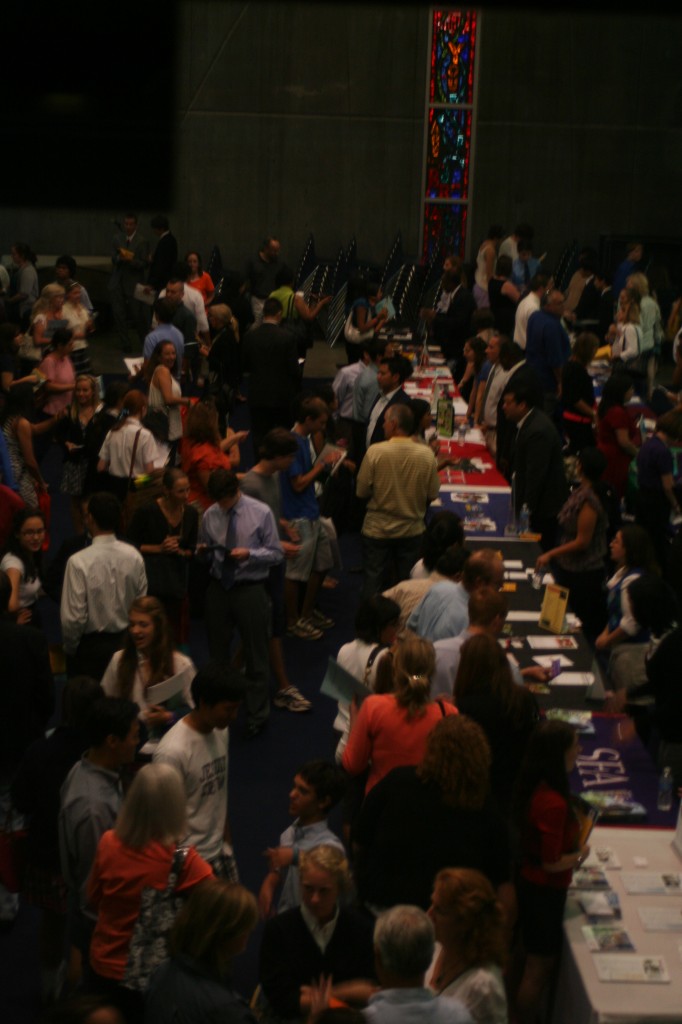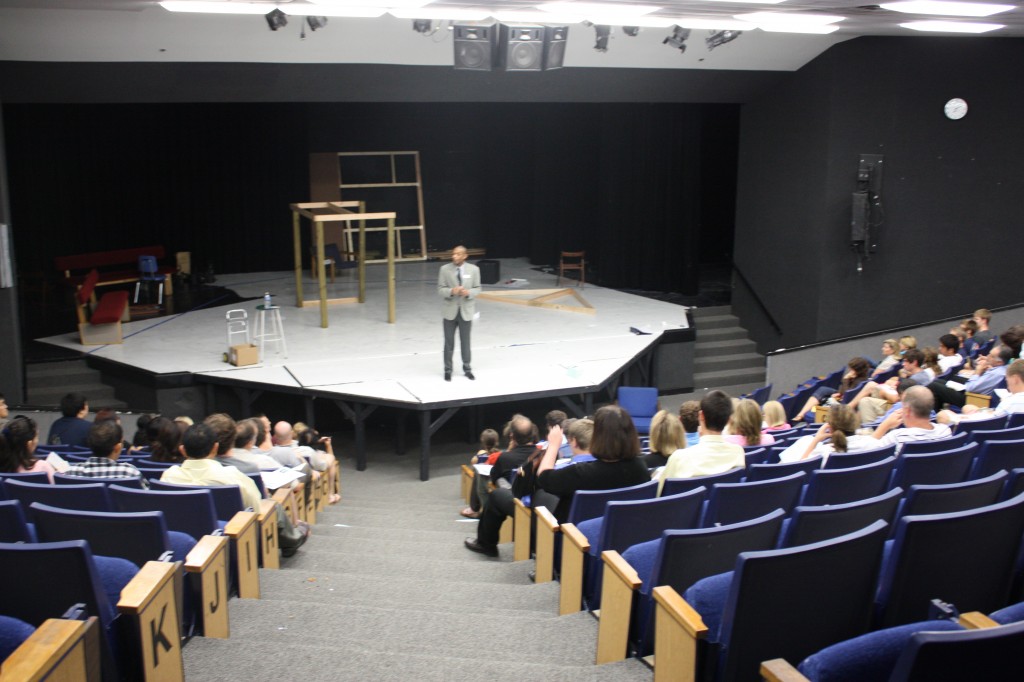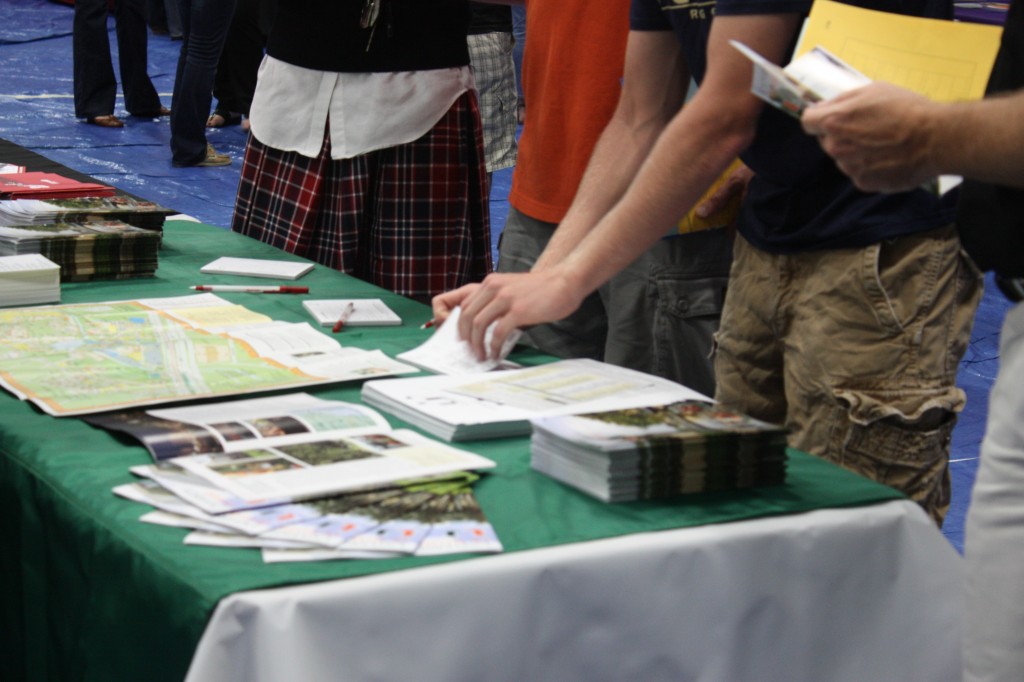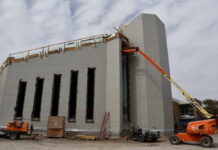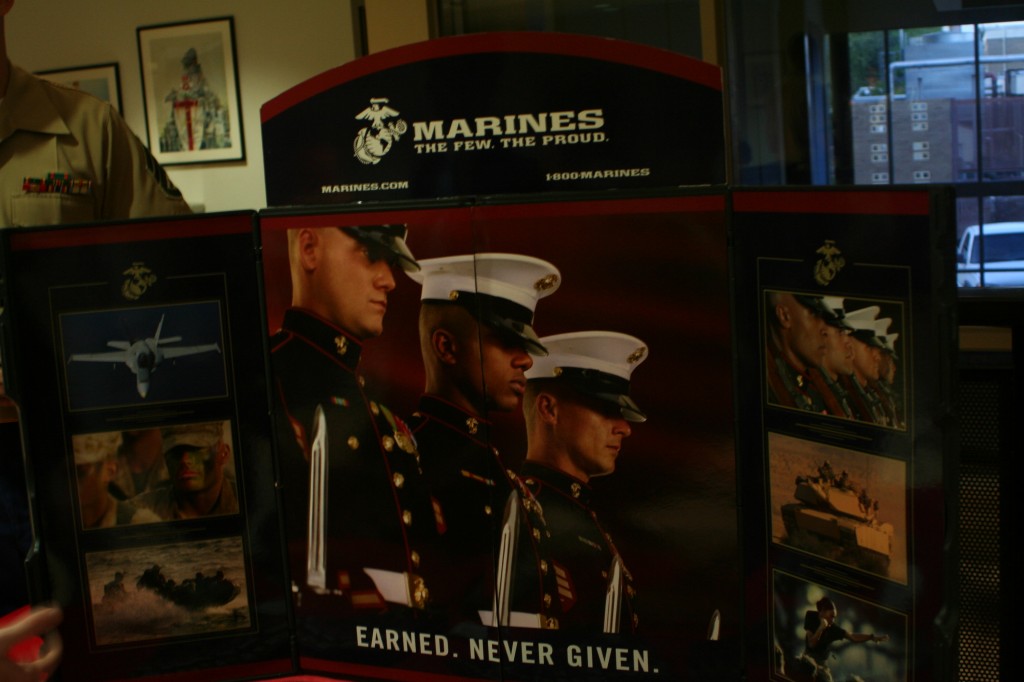 In a calendar sent out to prospective students last spring, Carleton College in Northfield, Minnesota proposed an idea they called “the College Fair Game” that involved receiving points for completing certain tasks. For example, “greeting at least three college reps with a firm handshake and ‘Hi, my name is…’” awards you +300 points while “mumbling a vague request like ‘Tell me about your school’” subtracts 50 points, as does “pretending you parents are invisible.”
In a calendar sent out to prospective students last spring, Carleton College in Northfield, Minnesota proposed an idea they called “the College Fair Game” that involved receiving points for completing certain tasks. For example, “greeting at least three college reps with a firm handshake and ‘Hi, my name is…’” awards you +300 points while “mumbling a vague request like ‘Tell me about your school’” subtracts 50 points, as does “pretending you parents are invisible.”
Indeed, the clichéd image of a college fair – the crowded, hot gym, filled with eager, soon-to-be college students hovering around tables covered with brochures, chip clips emblazoned with college logos, and admissions reps telling them why their school is perfect for them – can prove to be a daunting task for even the most determined student.
And such was the scene Tuesday, September 21, when Jesuit welcomed 2,000 local Catholic high school students to meet and talk with 285 college representatives from around the country and even the world with University of St. Andrews and Les Roches School of Hotel Management representing Scotland and Switzerland, respectively.
While it may not have advertised the surefire gratification that comes with a night of playing the new FIFA ’11 or another XBOX game of the same variety, there’s no denying that students came out and saw for themselves that college fairs can be both informative and enjoyable. “There’s something unique about talking face-to-face with an alum and/or admissions counselor of a school that you can’t really get from reading a website,” pointed out Abbey Massoud-Tastor, assistant dean of admissions at Union College in Schenectady, New York.
For seniors, Mr. Oglesby, Director of Counseling and senior counselor, describes the night as an opportunity “to affirm their interest in a college,” adding that “colleges make note of the times an applicant interacts with a college by email, by College Night visit, by campus visit, etc. A college wants to know how much one is really interested in attending their school.” “Oh yea, the college fair is definitely useful as a senior,” remarked senior J.P. Ackels. Reflecting the opinions of both Mr. Ogelsby and Ms. Massoud-Tastor, he claimed, “It offers a more personal touch from the colleges. It is not so much giving info as it is giving direct experience.” Ackels finished off with a few words of wisdom: “It’s essential that Jesuit keeps instituting it. It helped me to decide which college I wanted to attend.”
For juniors, Mr. Oglesby added, it offers an opportunity “to begin thinking about college and to realize that the junior year grades and events will highlight the student’s application to college.” Junior Mark Diaz-Arrastia took the words to heart as he claimed: “It was really my formal introduction to the college search. I’d been interested in it before and I’ve helped out with the college fair in years past but never have I felt so in the middle of it.” Following the theme of the night, junior Michael Gregory offered: “In talking with reps, I learned more about colleges than I had ever read on a brochure,” an idea present in Akos Furton’s analysis of the night as well: “While it was definitely overwhelming, the Harvard guy was cool to talk to…”
And now, with that being said, one obvious question remains – with 30-something pamphlets, a few visitation schedules, and one or two business cards, “What do I do now?” Mr. Oglesby suggests students “keep the materials and from time to time look at them, and if one has a question email the contact from the business card,” a suggestion that is mirrored on Collegeboard.com which advises those who have just attended a fair to “Research colleges that interest you. Explore websites, request more information from admissions offices, and plan to visit.”
And for what it’s worth, completing the latter awards you a whopping +500 points on the Carleton College spectrum.
Photography by Eric Futscher ’13 and Griffin Miller ’13


